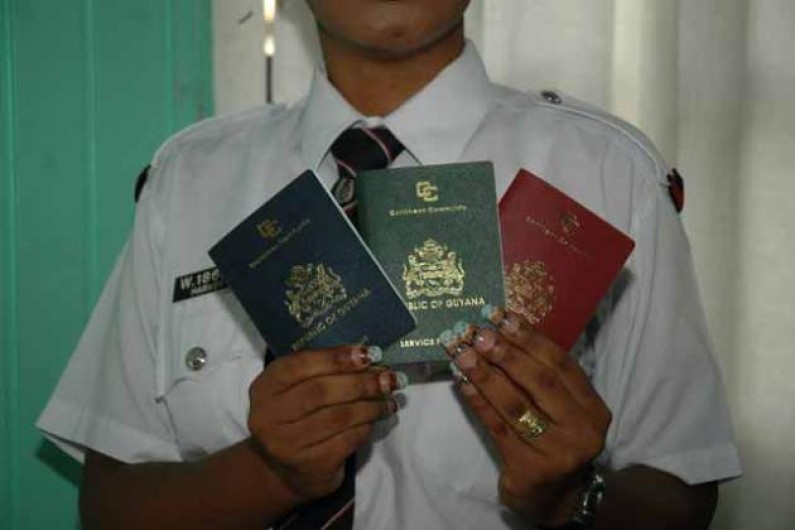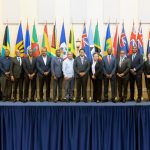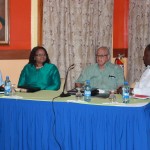
Using the now famous Shanique Myrie versus Barbados case, some 31 immigration supervisors drawn from Guyana’s immigration ports including the Cheddi Jagan International Airport, Ogle Airport, Bartica and Moleson Creek, were Thursday last sensitized about their roles and responsibilities particularly with respect to facilitating the free movement ofCARICOM nationals under theCARICOM Single Market (CSM).The worksite meeting, conducted in Georgetown, formed part of the CARICOM Trade and Competitiveness Project (CTCP) that seeks to enhance national information flows on the CSM in six Member States including Belize, Dominica, Guyana, Grenada, Jamaica and Saint Vincent and the Grenadines.
The project is being executed with institutional and technical support from the Ministry of Foreign Affairs and theCARICOM Secretariat with funding from the Canadian government.Delivering a brief background to the formation of CARICOM and the Revised Treaty of 2001 to include the Single Market, Technical Coordinator of the CARICOM Secretariat’s Technical Action Services Unit (TASU), Melbour Phillip, said since the establishment of the CSM on January 2006, some Member States have not yet amended their domestic legislation to become Treaty compliant.
He emphasized the relevance ofsensitization and education for all citizens across Guyana while noting that Member States are obligated to support the various regimes under theCSME including citizens’ right to work and travel.The TASU official posited that under the Free Movement regime, CARICOM nationals should enjoy their right to use their skills certificate, provide a service, or vacation without hindrance.
Meanwhile, Legal Officer, Legal and Institutional Framework at the CARICOM Secretariat, O’Neil Francis presented an overview of the legal rights of CARICOM citizens to travel freely consistent with the Revised Treaty of 2001 establishing the single market and agreements reached among CARICOM Heads of Government in 2007 and 2008, respectively.
Using the now famousShaniqueMyrie versus Barbados case in which the Caribbean Court of Justice (CCJ) ruled in favor ofMyrie, Francis explained thatCARICOM citizens have a right to a six-month stay upon arrival in another Member State. It is these rights that theCCJ found the Barbados immigration to have infringed againstMyrie, in addition to discriminatory treatment she alleged to have received on the basis of her nationality.Notwithstanding CARICOM citizens’ right to hassle free travel and equal treatment and protection from profiling and stereotyping, Francis further explained that the right to move freely can be constrained. He identified Article 2 (25 and 26) of the Revised Treaty which speaks to denial of entry on undesirable grounds based on an individual’s threat to national security and peace, supported by intelligence gathered. He emphasized the importance of shared intelligence among the region’s immigration officials to improve upon steps implemented during the Cricket World Cup 2007.
At the end of the worksite meeting, immigration officers fielded a number of questions pertaining to detecting threats and screening of passengers. They expressed satisfaction with the training and called for more frequent sessions to be better enlightened about CARICOM rulings and Guyana treaty obligations.
Under the CSME Information flows project, Guyana conducted nine other worksite meetings, a CSME Teacher Training workshop, a CSME Spokespersons Training workshop and CSME Media Training workshop. However, preliminary activities commenced on January 19 with a Communication for Development meeting to incorporate the inputs of major stakeholders into a national CSME public education and awareness strategy for Guyana.
Filed: 8th March, 2015












You must be logged in to post a comment Login